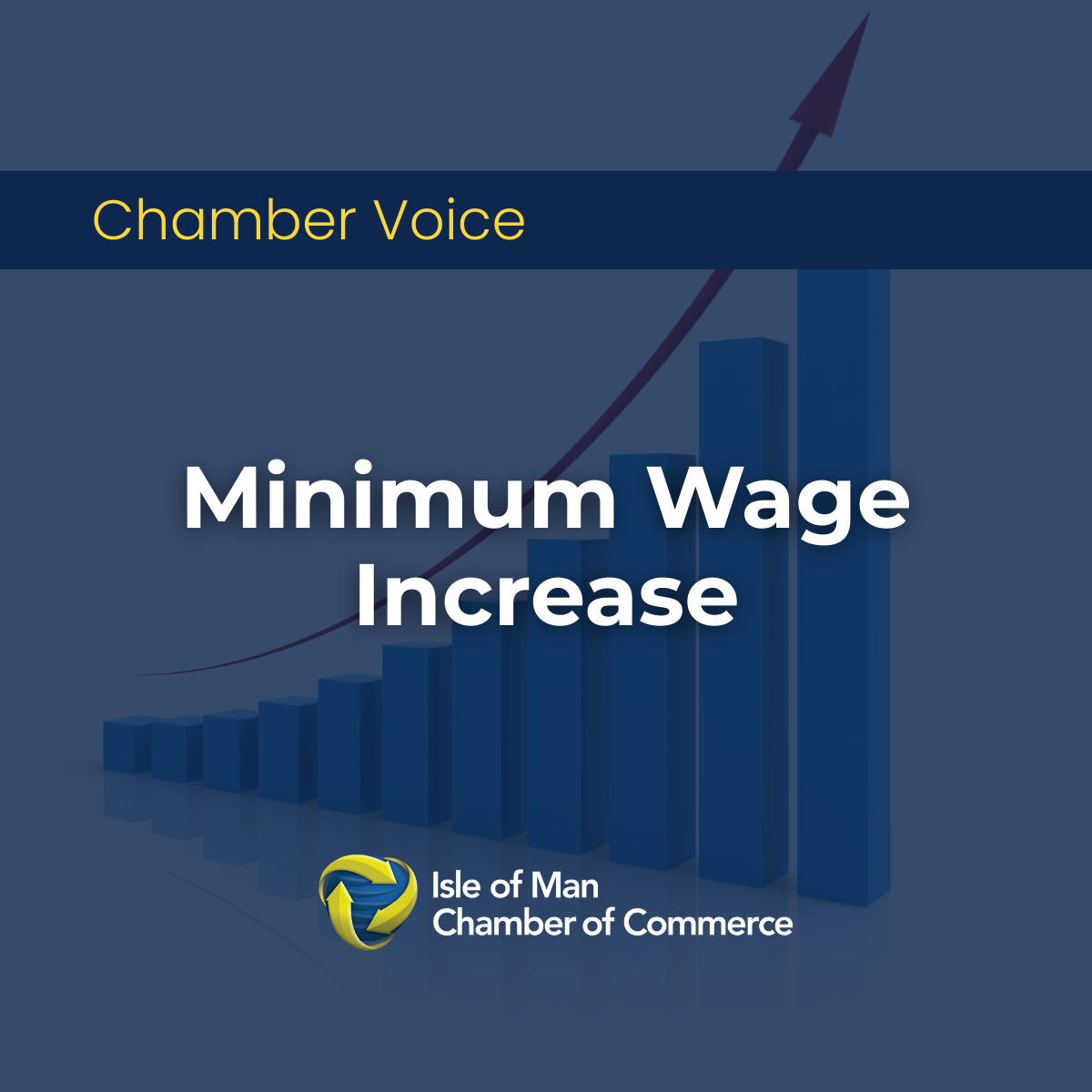Chamber warns of severe risks from sharp minimum wage rise and demands independent statistics body

01 October 2025
Isle of Man Chamber of Commerce has issued a stark warning following Government’s confirmation of a 9.9% rise in the minimum wage – three times the current inflation rate of 3.3%.
Following their initial statement last week (https://www.iomchamber.org.im/policy-voice/chamber-statement-on-99-minimum-wage-increase/), Chamber issued a snapshot survey to its members and the wider business community. The results – from over 100 responses – show the immediate concerns raised by businesses, all of which underline the seriousness of the challenge:
- 86.7% of respondents said the minimum wage increase would have some impact on their business.
- 45.8% said the rise will have a significant impact.
- Only 27.7% said the impact would be manageable.
- 13.3% warned of a risk of downsizing or closure.
- Only 13.3% said it would have no impact.
When asked how they would respond, the survey showed:
- 35.0% will raise prices.
- 21.2% will reduce staff numbers.
- 16.2% will absorb the cost, while 17.5% remain uncertain.
- 7.5% will freeze recruitment.
- 2.5% will reduce staff hours.
The snapshot survey findings are backed up by other Chamber surveys, and direct feedback from businesses, gathered over the past year about widespread, serious concerns regarding the minimum wage increase.
This pressure is not confined to one sector or one type of employer. While 18% of responses came from hospitality, strong feedback from retail, finance, and professional services shows the risk is spread across the whole economy. Crucially, over 80% of Chamber members are small businesses, many of them employing fewer than 50 staff, with micro-businesses of fewer than nine employees especially vulnerable. This highlights that the impact will be felt most by the small firms that form the backbone of the Island’s economy.
Chamber supports fair pay. But a jump of this scale risks putting employers under unbearable strain. The reality is higher prices for consumers, fewer jobs, and stalled growth. While some argue that higher wages could give workers more disposable income, Chamber warns that this effect is quickly cancelled out if businesses are forced to raise prices or cut jobs to cope. In net terms, workers can end up no better off — and in some cases worse off.
Chamber has also consistently argued that the most effective way to improve living standards is to tackle the Island’s high cost base — energy bills, rental accommodation, and food prices — which weigh heavily on families and employers alike. These are key barriers to attracting and retaining staff. A promised domestic economy review to address these pressures has yet to be delivered, and Chamber is urging Government to make this a priority.
Chamber also highlights flaws in how wage benchmarks are set. For example, Cabinet Office Minister David Ashford confirmed that in 2024 the median weekly wage was £706 in the private sector versus £902 in the public sector. Chamber says merging these figures distorts the real situation and creates wage expectations that many private businesses simply cannot meet.
Chamber is urging Isle of Man Government to act decisively:
- Publish a full impact assessment of the wage rise.
- Provide targeted support for the hardest-hit sectors such as hospitality, retail, and care.
- Take steps to reduce business costs, including VAT and electricity.
- Establish an independent statistics body to publish timely, credible economic data.
- Ensure independent economist input into future wage-setting and economic policy, so decisions are based on robust analysis rather than political pressure.
The call for better data and independent expertise is urgent. GDP fell by 5% in 2022/23, but no new figures have been published since. Median earnings have stagnated since 2009, while typical households face higher-than-average inflation due to rising food, energy, and housing costs.
Chamber says the Isle of Man cannot continue to steer its economy blindfolded. Without reliable data and independent expert analysis, decisions are made in the dark. Most modern economies already have independent statistics bodies and economist oversight (for example, the UK has the Office for National Statistics and the Low Pay Commission), so the Isle of Man cannot afford to be left behind.
